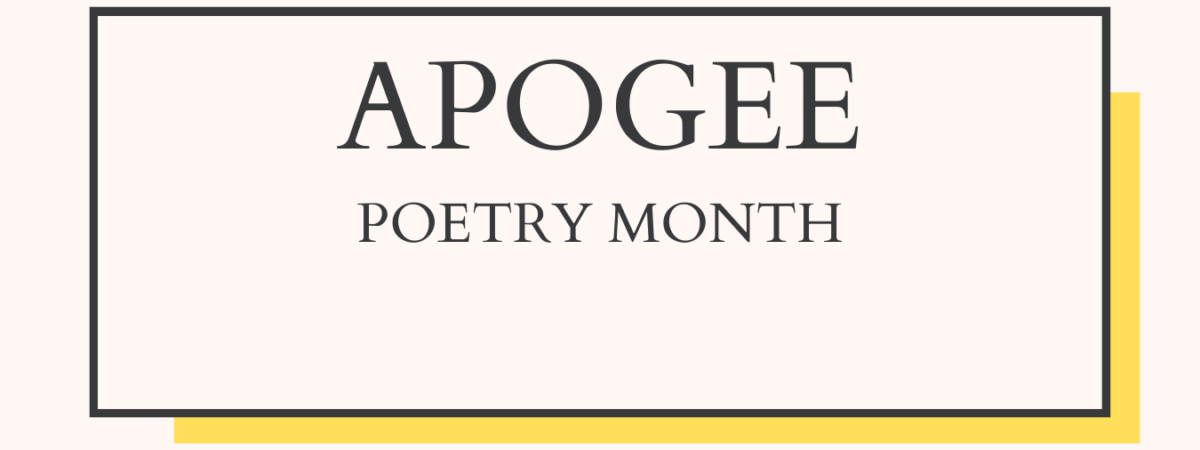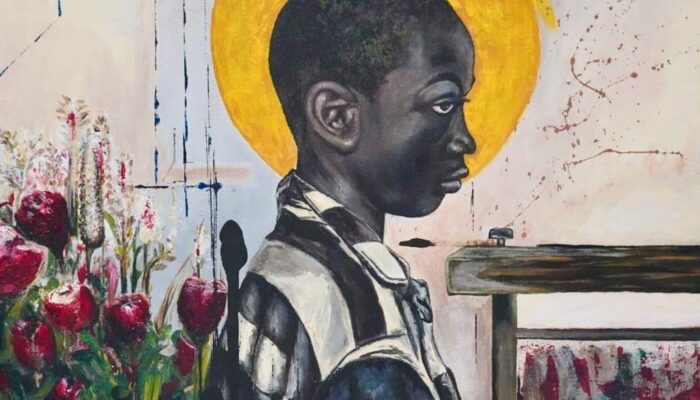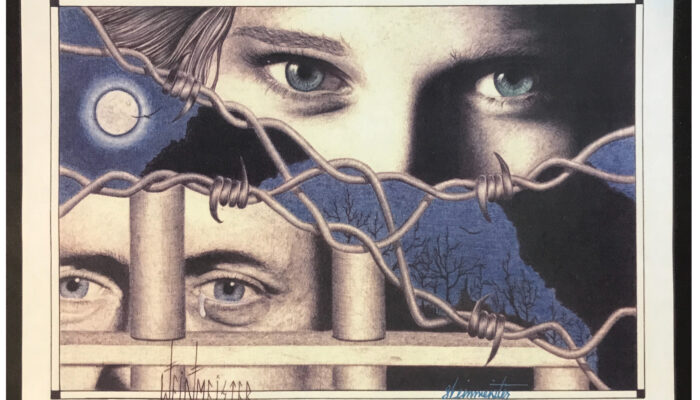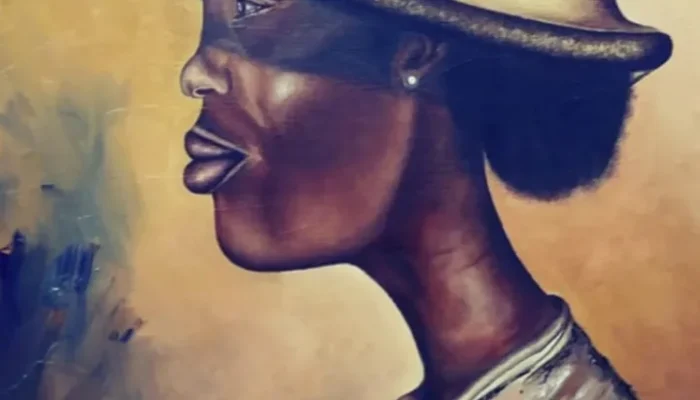Join Apogee Journal as we celebrate the magic of reading and writing poetry for the full month of April. This month, we’ll be featuring regular writing prompts, a reading by poets from our most recent issues 14 and 15, and a live reading celebrating our Broadside Series!
Mark your calendars for upcoming events on April 20th and April 29th at 7PM.
This month, we’ll also be sharing writing prompts inspired by poems published in Apogee. You can follow along our regular social media channels to get a new prompt every other day or read on for the full list of prompts. We hope these prompts will help you birth new poems and aid you in your writing practice.
Poetry Prompts:
Image exercise: Compose 5 – 10 observations of the physical space around you, refusing or avoiding figurative language. In this exercise attempt to compose clear concrete images (sight, smell, sounds, tastes, touch) in as much specific detail possible.
Parody: Lampoon a news article. What pervasive or oppressive biases might you reveal through parody? What ironies might you excavate to criticize the telling of the World? In his poem “The Smalltown Daily, Metro Section, Page 8, Below the Fold: Police Shooting, Black Lab Mistaken for Coyote,” Gary Copeland Lilley anchors the poem’s narrative using a central metaphor. Think to do the same.
On measure: As Saretta Morgan’s poem “from Auto-Index” reminds us, there is no benign method of measure. If possible, take measure of comportments of your body. To the best of your ability, mirror Morgan’s form. Write the thoughts that come to you as you take these measurements. Perhaps you have no yardstick, what else might you use?
Ekphrastic poem: Ekphrastic poetry attempts to depict the qualities, features and aura of an artwork. We encourage you to peruse our visual arts archive for a piece that resonates with you. What draws you to this piece? If struggling to begin, write what you notice, describing the piece and take it from there.
Riff/rain: What a haunting refrain in Raquel Salas Rivera’s extraordinary elegy [poema para ser leído en circuito] / [poem to be read in a circuit], mourning Puerto Rican Trans activist Sophia Isabel Marrero Cruz titled. Today’s task it to compose a poem beginning with a single repeated refrain. You may choose to commemorate the departed as Rivera, or not. As you repeat the refrain, what thoughts come to you? What interruptions in the mantra? What riffs might you play in the sound?
A definition: Reflect upon Dominique Salas’ poem, “Güero/Güera.” Write five words: A term of endearment recalled from childhood, a euphemism, the name of an imaginary friend or boogeyman, or/and whatever else may come to you. Choose one and create a definition for this word. Is this an English word? Does it translate neatly into English? If so, trouble that, if not, approximate its meaning(s), in as many languages as you speak or write.
Heroes and villains: It has been said the hero is a dupe of epic proportions. In the poem, “Portrait of my Mother as Mystique from X-Men,” Michelle Lin selects the iconic Marvel villain Mystique to depict through portraiture a complicated person and relationship. Are you drawn to any fictional villainous figures? Write about a person in your immediate life as though they are this villain.
Epistles: The epistles of both Sade LaNay, “untitled, for Michael” (Is. 9), and Imani Elizabeth Jackson, “slow coup (for ancient music)” (Is. 12) each demonstrate elegiac tones for Michael Brown and Amiri Baraka respectively. Today’s prompt is to draft a letter, not necessarily an elegy, to whomever you need to speak. Perhaps this is a letter you bring others in to write, like a holiday card. Perhaps it is full of rage and directed toward an elected politician, in which case I would say, “Send it.”
Double exposure: Write a poem in the form of questions and answers or calls and responses. It may be fruitful to think of Suzanne Highland’s poem “Survey” as a “double exposure” or a poem read column to column as well as across the width of the page. It might be useful to begin by listing questions.
Redaction: As Joselia Hughes demonstrates, poetic redaction is the practice of literal exclusion, violence. Your task is to write an erasure poem. What words do you select for inclusion and what significations do they accrue when extracted from the source document? What words do you redact or erase into silence? Do the rules of Standard English grammar apply to your poem? If struggling to select a source, very recently Alabama lawmakers set forth an Anti-Trans Youth bill HB 1 / SB 10, perhaps this law, or one pertinent to your immediate life or community may serve as a source text proper for [poetic] obliteration.
Concrete poems: Concrete poetry is typically defined as “an arrangement of linguistic elements in which the typographical effect is more important in conveying meaning than verbal significance.” Claire Marie Stancek and Ava Hoffman’s poems trouble this exclusionary definition in that they do not privilege typographical effect over verbal significance but rather consider entanglements of form and content. Are Claire Marie Stancek and Ava Hoffman’s poems concrete poems, which is to say transgressing this literary tradition fiercely argued, defended, anthologized and historicized by white men (and few white women) to the exclusion of everyone else or are they “visual poems” bordered out of the boy’s club? Today, write seven lines to arrange and rearrange. Perhaps you’d like to cut up an old magazine or newspaper. Perhaps you have the typographical tools to produce a graphic or concrete poem. Maybe you have pen and paper. What shape might your small spell take?
Photography and poetry: Considering how, in “Deep Scratch”, Sean D Henry-Smith synthesizes text and visual media to articulate entanglements of sense being and place, use whatever technologies available to you (iPhone camera, ink, clay, or paint and fingertip) create an image. Write a poem to, if not caption the image, engage with it. If it is a tactile image, is it a figurine? Plushy?
Litany: Consider Michael Wasson’s list poem to locate and enumerate grievances with settler-colonial nation state. We might think of the piece similar to the zuihitsu, in that the conceit revealed in the title umbrellas what might otherwise seem disconnected fragments of thought. The list indicates the taking of account? Who? For what? And what are limitations to the language of accounting?




